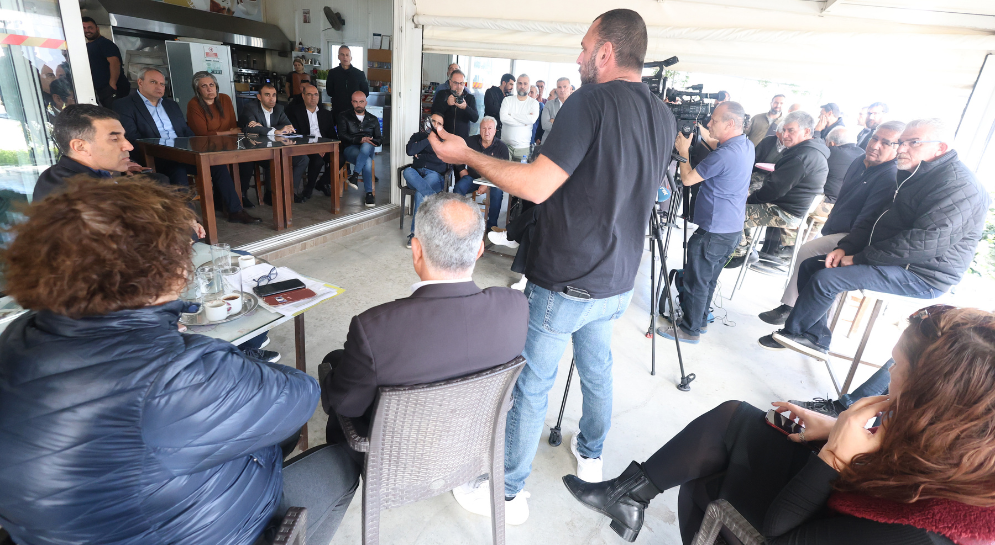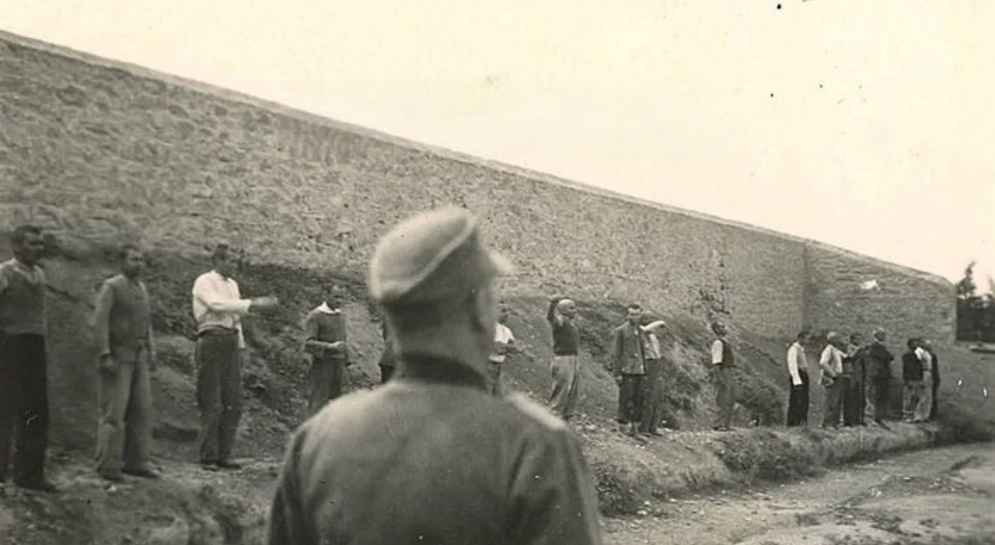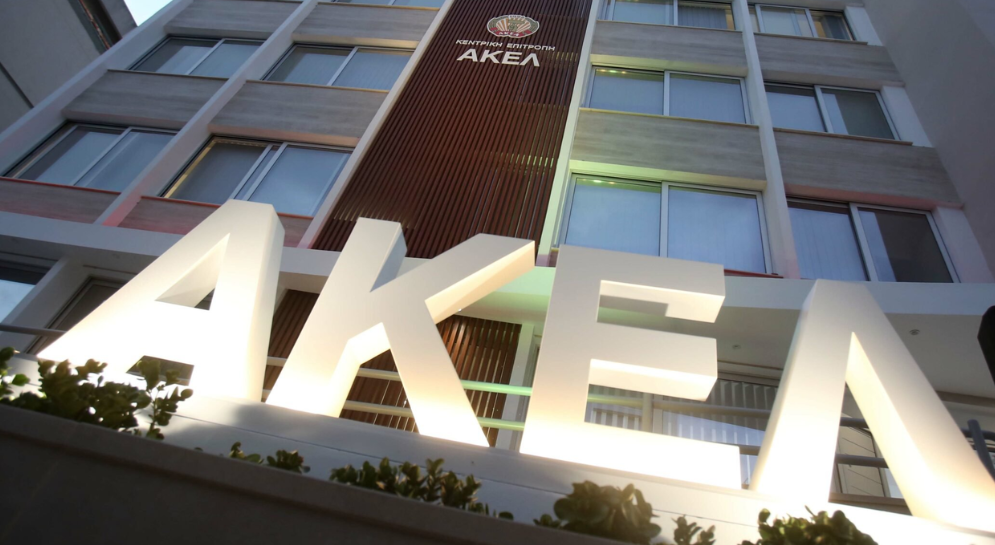
Interview with the General Secretary of AKEL A.Kyprianou
Sunday, 11th April 2021, ‘Haravgi’ newspaper
- Cyprus on the brink of partition due to Anastasiades’ handlings
- AKEL has submitted a comprehensive proposal on the Cyprus problem to the President but didn’t discuss it with him
- All ideas are welcome as long as they are part of the agreed framework of the solution
What are the facts that lead you to believe that the Geneva conference will end in failure?
AK: First and foremost, because Turkey and Tatar are putting forth unacceptable demands. The demand for a two state solution or confederation is unacceptable which cannot under any circumstances be accepted by us. At the same time, we foresee that, unfortunately, there is no intention on the part of Mr. Anastasiades to act in a way that will make it difficult for Turkey to either be forced to cooperate on the agreed framework of the solution or to let Turkey be exposed before the international community, rendering consequently the fulfillment of its goals unfeasible.
All this creates a negative environment which if does not subsequently change and more specifically in Geneva itself, I am very afraid that it will lead to a negative result, given that the preconditions for the resumption of the negotiations won’t be created. Such an eventuality will provoke a series of negative developments to the detriment of Cyprus and our people.
What can the Greek Cypriot side do right now? Can Cyprus exert more pressure through Euro-Turkish relations?
AK: It is evident that at this stage the EU is showing more interest on the Cyprus problem. They understand that they need Turkey for various issues, such as for example on the immigration issue. They know very well that in order to cooperate with Turkey, the problems that Turkey has with Greece and Cyprus must be resolved. That is precisely why European officials are going to Turkey trying to persuade Mr. Erdogan of the need to work together to overcome these problems. Based on what is being said publicly, it is obvious that so far there are no positive developments that have emerged as far as the Cyprus problem is concerned.
If the international community and the EU agree that the solution to the Cyprus problem cannot be other than that outlined by the resolutions and decisions of the UN, then why are you worried about a change in the basis of the solution?
AK: The UN Secretary General was quite clear: that is to say, he is bound by the relevant resolutions of the UN and only if both sides agree on another basis of the solution could he address the UN Security Council to request a change in the agreed framework. In such a case, I am certain that not all members of the UN Security Council would agree to that.
As far as the EU is concerned, it has made it clear that it will never accept a two state solution. I hope and wish that whatever discussions take place will be within the agreed framework of the solution.
The only reason we are worried about the possibility of a change of the basis of the solution is because Mr. Anastasiades at some point had discussed with many figures the possibility of an agreement for a two state solution. Turkish Foreign Minister Mr. Tsavousoglou is adamant that Mr. Anastasiades had mentioned something like this to him as well. You realize that on the one hand it has created a negative precedent in the sense that it has permitted Turkey to raise the issue and insist on a two state solution and on the other hand it harms the credibility of the Greek Cypriot community.
AKEL is asking the President to submit bridging proposals only on the outstanding issues and his spokesperson replies that the President has submitted proposals, but the Turkish side did not discuss them. What should the President do?
AK: On December 8, we submitted to Mr. Anastasiades a comprehensive proposal on the Cyprus problem. Since December we have been waiting for the President to invite us to discuss our proposal. He has not called us, nor has he told us what he intends to do other than issuing general statements. I think it would be right as we are going to Geneva that he should at least tell us what his intentions are.
It has been said that another meeting of the National Council will be convened to brief you about the study carried out on decentralized federation…
AK: That’s what the President has said and we are waiting to see. I hope it is not a last minute job and that it will be a general and verbal briefing. I hope we have the final documents that have been prepared by the team of experts.
What should Mr. Anastasiades do? Mr. Anastasiades must not forget that he has withdrawn proposals that he had submitted at Crans Montana. Provided that the negotiations will resume, he must be ready to submit bridging proposals on the six points submitted by the UN Secretary General, where pending issues remain.
Two weeks before the informal five-party Geneva meeting, the general assessment is that the President does not have a clear position on the issue of political equality, nor on decentralized federation. When you challenge him on that matter he states that he does not negotiate in public…
AK: Nor do we want him to negotiate in public, but we want him to make it absolutely clear that he recognizes political equality because he has publicly questioned it. He said that he cannot accept the Christofias-Talat and Anastasiades-Akinci convergence for a single positive vote in the Ministerial Council. He said that only on the issues that the Turkish Cypriots have an interest in can they have a single positive vote and excluded the issue of natural gas. Is there any rational person in the world who can accept Anastasiades’ approach? That is precisely why we say that he needs to clarify these issues.
You have previously spoken about the attitude of the members of the UN Security Council towards the basis of the solution. Has it been clarified whether Britain will present proposals or ideas for a “middle solution” between the positions of the two sides?
AK: Britain did not submit proposals, it brought some ideas. We, during a meeting we had with the British High Commissioner in Cyprus, made it clear that these ideas could not be accepted. Although the government has addressed these ideas in the same way, I believe they will not come back. Whether Britain will come up with other ideas, I don’t know. We say that all ideas are welcome as long as they are within the agreed framework of the solution.
Is the Cyprus problem on the pre-election campaign agenda?
We must not be naive. What position Mr. Anastasiades will take will affect a part of ruling DISY party’s electorate. Consequently, what he says about the Cyprus problem concerns the elections while some people are telling us that Mr. Anastasiades allegedly does not interfere in the elections. He knows very well that his stand influences the electorate towards DISY.
At what stage are the initiatives taken by AKEL with Turkish Cypriot political forces on the Cyprus problem in view of the upcoming Geneva meeting? Are mobilizations being planned?
AK: We have made public twice a joint declaration with the Turkish Cypriot ‘Turkish Republican Party’ (CTP) and one with a platform composed of movements and trade union organisations in the Turkish Cypriot community. Yes, we are indeed discussing the possibility of organising a mobilization which, unfortunately, due to the pandemic will not be common, but on both sides of the division line.
‘The Turkish Cypriot parties believe that AKEL’s proposal could corner Turkey’
Why do you think the President hasn’t discussed your proposal on the Cyprus problem with you, one part of which concerns the hydrocarbons issue?
AK: I don’t know, but most probably it is because he disagrees with our proposal. For that reason, everyone will be judged by the result of his/her actions and the handling made of the Cyprus problem. This is what Mr. Anastasiades used to say when he was in the opposition and he must know that he will be judged by the handlings he has and will make. Judging by where the Cyprus problem is at the moment compared to where it was when Mr. Anastasiades assumed the Presidency, today it is unfortunately in a very dangerous position, on the brink of the final partition of Cyprus.
Have you shared your proposal with others? What was their reaction?
AK: We have shared our proposal and discussed it with Turkish Cypriot political parties, who consider that our proposal could corner and put pressure on Turkey to force it to cooperate. The Greek Cypriot parties, and Mr. Anastasiades too, have not reacted. We do not expect the Secretary General of the UN to respond to our proposal. His duty is to discuss with Anastasiades and Tatar.




